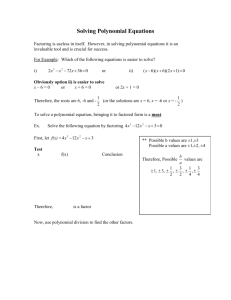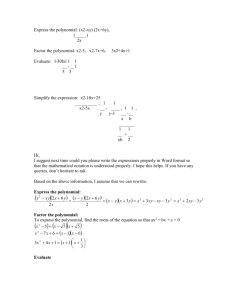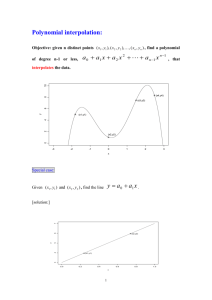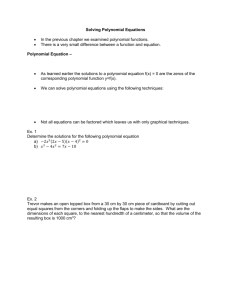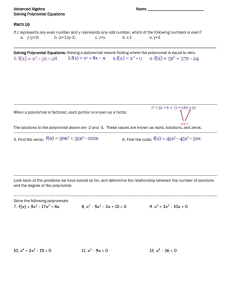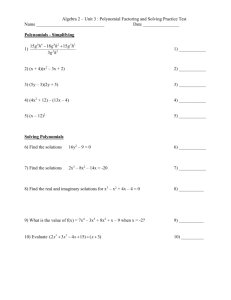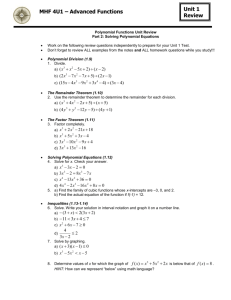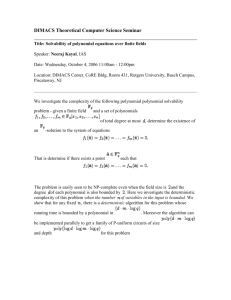Equation for Sequence of Numbers
advertisement
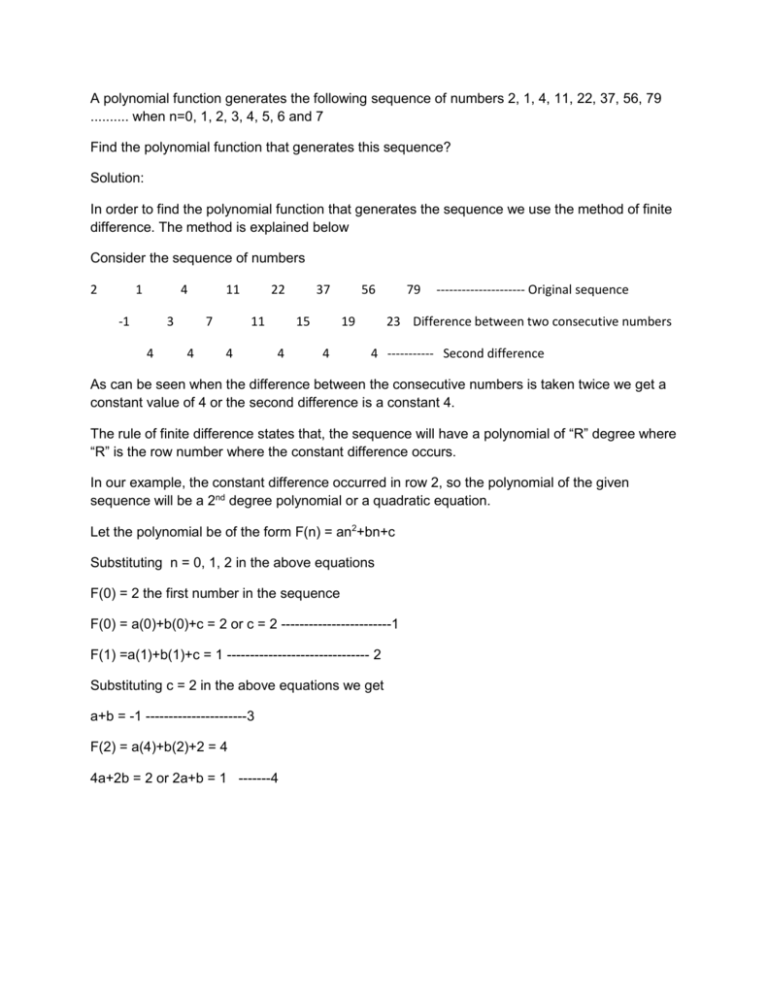
A polynomial function generates the following sequence of numbers 2, 1, 4, 11, 22, 37, 56, 79 .......... when n=0, 1, 2, 3, 4, 5, 6 and 7 Find the polynomial function that generates this sequence? Solution: In order to find the polynomial function that generates the sequence we use the method of finite difference. The method is explained below Consider the sequence of numbers 2 1 4 -1 3 4 11 7 4 22 11 4 37 15 4 56 19 4 79 --------------------- Original sequence 23 Difference between two consecutive numbers 4 ----------- Second difference As can be seen when the difference between the consecutive numbers is taken twice we get a constant value of 4 or the second difference is a constant 4. The rule of finite difference states that, the sequence will have a polynomial of “R” degree where “R” is the row number where the constant difference occurs. In our example, the constant difference occurred in row 2, so the polynomial of the given sequence will be a 2nd degree polynomial or a quadratic equation. Let the polynomial be of the form F(n) = an2+bn+c Substituting n = 0, 1, 2 in the above equations F(0) = 2 the first number in the sequence F(0) = a(0)+b(0)+c = 2 or c = 2 ------------------------1 F(1) =a(1)+b(1)+c = 1 ------------------------------- 2 Substituting c = 2 in the above equations we get a+b = -1 ----------------------3 F(2) = a(4)+b(2)+2 = 4 4a+2b = 2 or 2a+b = 1 -------4 Solving equation 3 and 4 for a and b. Multiply equations 3 by -1 and add to equation 4 2a+b = 1 -a - b = 1 a = 2 Substituting a = 2 in equation 3 we get b = -3 a = 2, b = -3 and c = 2 are the three constants for the polynomial an2+bn+c So we can write the polynomial for the sequence as 2n2-3n+2 --------------------- 5 We can substitute the values of n = 0, 1, 2, 3, 4, 5, 6, 7 etc to obtain the above sequence using the polynomial equation 2n2-3n+2
